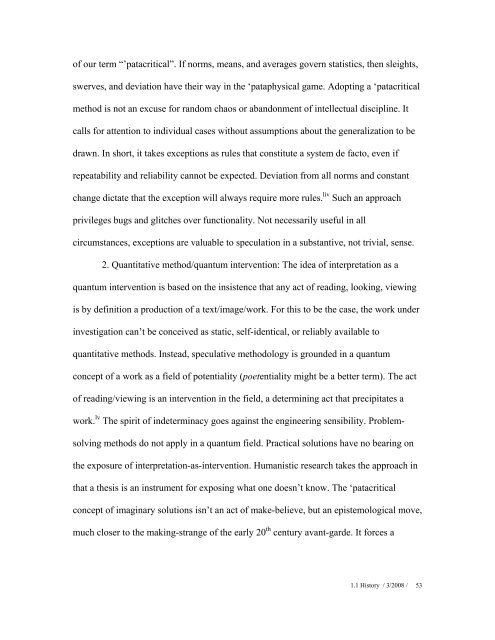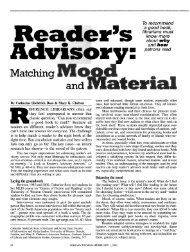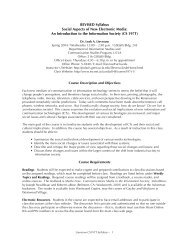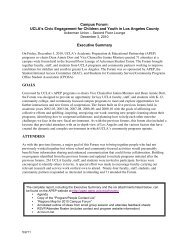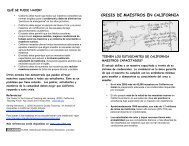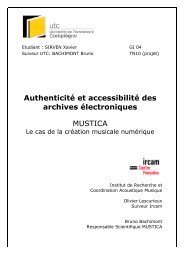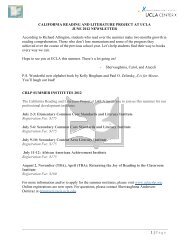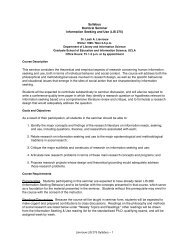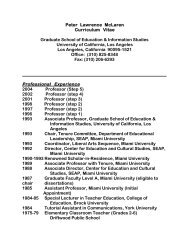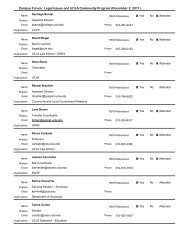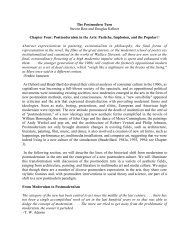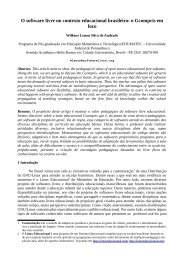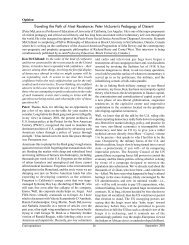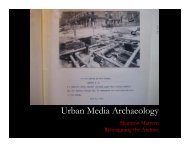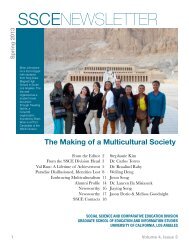1.1 From Digital Humanities to Speculative Computing - UCLA ...
1.1 From Digital Humanities to Speculative Computing - UCLA ...
1.1 From Digital Humanities to Speculative Computing - UCLA ...
Create successful ePaper yourself
Turn your PDF publications into a flip-book with our unique Google optimized e-Paper software.
of our term “’patacritical”. If norms, means, and averages govern statistics, then sleights,<br />
swerves, and deviation have their way in the ‘pataphysical game. Adopting a ‘patacritical<br />
method is not an excuse for random chaos or abandonment of intellectual discipline. It<br />
calls for attention <strong>to</strong> individual cases without assumptions about the generalization <strong>to</strong> be<br />
drawn. In short, it takes exceptions as rules that constitute a system de fac<strong>to</strong>, even if<br />
repeatability and reliability cannot be expected. Deviation from all norms and constant<br />
change dictate that the exception will always require more rules. liv Such an approach<br />
privileges bugs and glitches over functionality. Not necessarily useful in all<br />
circumstances, exceptions are valuable <strong>to</strong> speculation in a substantive, not trivial, sense.<br />
2. Quantitative method/quantum intervention: The idea of interpretation as a<br />
quantum intervention is based on the insistence that any act of reading, looking, viewing<br />
is by definition a production of a text/image/work. For this <strong>to</strong> be the case, the work under<br />
investigation can’t be conceived as static, self-identical, or reliably available <strong>to</strong><br />
quantitative methods. Instead, speculative methodology is grounded in a quantum<br />
concept of a work as a field of potentiality (poetentiality might be a better term). The act<br />
of reading/viewing is an intervention in the field, a determining act that precipitates a<br />
work. lv The spirit of indeterminacy goes against the engineering sensibility. Problem-<br />
solving methods do not apply in a quantum field. Practical solutions have no bearing on<br />
the exposure of interpretation-as-intervention. Humanistic research takes the approach in<br />
that a thesis is an instrument for exposing what one doesn’t know. The ‘patacritical<br />
concept of imaginary solutions isn’t an act of make-believe, but an epistemological move,<br />
much closer <strong>to</strong> the making-strange of the early 20 th century avant-garde. It forces a<br />
<strong>1.1</strong> His<strong>to</strong>ry / 3/2008 /<br />
53


